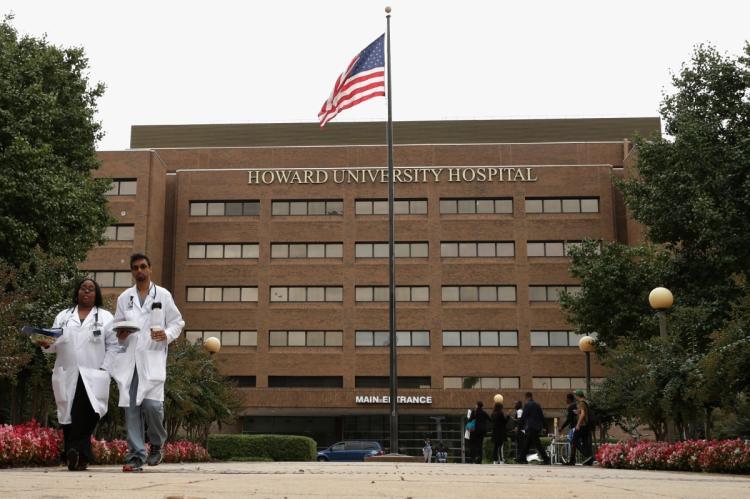The Andrew W. Mellon Foundation, a nonprofit that funds humanities initiatives, awarded Georgetown University and Howard University a $3 million grant to create a joint center for medical humanities that aims to advance health equity in Washington, D.C.
The center will focus on finding ways to use the tools of medical humanities, such as art, philosophy and history, as a frontline response to public health problems including health disparities and illness, according to a Jan. 19 news release from the Georgetown University Medical Center. The inspiration for the Georgetown-Howard Center for Medical Humanities and Health Justice emerged from conversations between Lakshmi Krishnan, the founding director of Georgetown’s Medical Humanities Initiative, and Dana Williams, the dean of Howard’s graduate school.

Krishnan said the center leans on the concept of critical medical humanities, a view that claims biomedical sciences need to engage with humanities and social sciences to be effective.
“In our view, medical humanities and biomedical sciences are in a critical conversation, and medical humanities offers idea generation, method, analysis, and development of priorities in much the same way that the ‘lab or bench sciences’ have been conventionally viewed as necessary counterparts to clinical practice and research,” Krishnan wrote to The Hoya.
The field of medical humanities is multidisciplinary, combining approaches from various fields to provide solutions to medical problems and inform medical practices. The field uses tools and methods from the social sciences to analyze health in a broader social, cultural and historical context.
Ella Castanier (CAS ’24), who is minoring in medical humanities, said the field addresses the full scope of a complex problem through a combination of different approaches.
“Medicine doesn’t exist in a vacuum,” Castanier told The Hoya. “Physicians, nurses and all health care professionals are working with real people, and medicine exists within a social, cultural and historical context. When working with patients and providing care, it’s very important to be aware of the patient’s own contexts and background. You can’t just make decisions based on hard science and labs.”
Krishnan said another focus of the initiative will be expanding the medical humanities minor at Georgetown and existing interdisciplinary programs at Howard University. The medical humanities center will also sponsor various relevant events and host research teams that students can join.
The center hopes to work with community partners in its mission to understand a full picture of medical humanities.
“We know that the communities that live with these disparities are among the best equipped to help eliminate them,” Williams wrote to The Hoya. “So, we want to create community partners who help us see what we might be missing otherwise. We want to remind the communities our universities are a part of that we value what they bring to us and what we can bring to them.”
Castanier said she is excited that the partnership’s initiatives will apply medical humanities beyond a purely academic context.
“I think a lot of times humanities have a reputation for just existing within academic institutions. I think this is gonna be really important to show how humanities can actually be used in a public setting and to address real issues,” Castanier said.
The center also gives students from Georgetown, a predominantly white institution (PWI), and Howard, a historically Black college or university (HBCU), an opportunity to work together at the center and build relationships across campuses.
Williams said she is optimistic about this historic partnership and hopes it will model ways universities can collaborate to address public health challenges.
“We really want to model how a PWI and an HBCU in a major city can work together without competition for students or resources,” Williams wrote. “Each school brings strengths. We both have medical schools and researchers who are committed to this work. There’s no reason we shouldn’t work together. We want to do it so well though that other schools and cities can see what’s possible when two schools come together to address localized challenges.”
Williams said one of the center’s biggest goals is to make a real impact on reducing health disparities in the District.
“We will know that we have succeeded when we can close our doors because negative health outcomes no longer disproportionately impact Black communities in D.C.,” Williams wrote. “Anything short of that means we will have work to do. And we don’t want this work to last in perpetuity. We want meaningful change for the better in the near future.”
According to Sustainable DC, there are significant disparities along the lines of race, income and geography. Black residents are 2.5 times more likely to have heart disease than white residents, and where one lives in the city can impact one’s life expectancy up to 10 years.
Williams said the center will provide students with the opportunity to be more holistically educated as they consider a career in the medical profession.
“We want every student to understand the role they can play in ending health disparities,” Williams wrote. “We want to be one with these communities that host our students day-in and day-out.”













